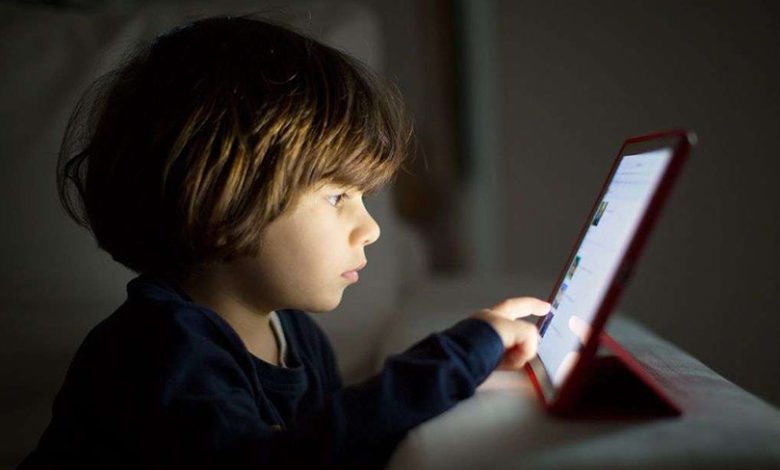Children’s exposure to screens: “Changing family habits”

Two-year-olds spend an average of 56 minutes a day in front of a screen. This conclusion of the epidemiological bulletin of Santé publique France points to a screen time of toddlers that is far too important. And the duration increases with the years: 1 h 10 at the age of 3 and a half years and 1 h 34 at 5 and a half years. This large French study, called Elfe (French Longitudinal Study from Childhood), was conducted in 18,000 children before the COVID-19 outbreak.
“For the little ones, the screens are very attractive. With colorful content and movement, they easily capture attention. Television, smartphone, today, society lives with a screen”, notes Marie-Noëlle Clément, psychiatrist, psychotherapist, director of the children’s day hospital of Cerep-Phymentin in Paris and founding member of the association “3-6-9-12”. Education is largely imitation, with children learning from their parents’ behavior. “To limit children’s exposure to screens, we need to address the overall problem of family dynamics. It is the habits of the whole family that must be changed more broadly.”
Digital babysitter
Screens are increasingly impacting family relationships and interfering with parent/child relationships. “We’re hearing more and more about parental technoference. Parents often carry their mobile phones with them as they care for their children, play with them, and so on. Some mothers even use their smartphones during breastfeeding, which prevents their babies from seeing each other. This moment of meeting is not done, it is highly deleterious for the development of the toddler,” regrets Marie-Noëlle Clément.
In fact, some studies have shown that children whose parents were glued to their phones in the park tended to be more at risk and to have more temper tantrums. A way to get attention.
“Obviously, the recommendations tend to be as small as possible, but some nuances are important. It is preferable to opt for interactive activities and always in the presence of an adult. The main thing is to re-establish communication, to interact all together and not leave your child passive in front of a screen,” the psychiatrist recommends.
No screen in the children’s room
If you want to keep children away from screens, you have to offer them other options. Indeed, turning on the television is often the simplest answer to boredom or the parents’ occupation with other tasks. Instead of this digital babysitter, offer board games, reading moments, outdoor outings, manual activities, cooking recipes to do together, etc. The idea is to make time spent in front of the screens a little shared pleasure and not a solitary habit.
In order to tend towards a good use of screens, it is recommended to avoid them as much as possible in the evening so as not to prevent falling asleep, to turn off the television during meals to promote this moment of exchange and not to place screens in the children’s room.
As a final tip, don’t let your child watch TV in the morning: “If the screens don’t promote sleep, they don’t help prepare the brain for school either. The mistresses can easily identify the little ones who watched a cartoon before coming.”












